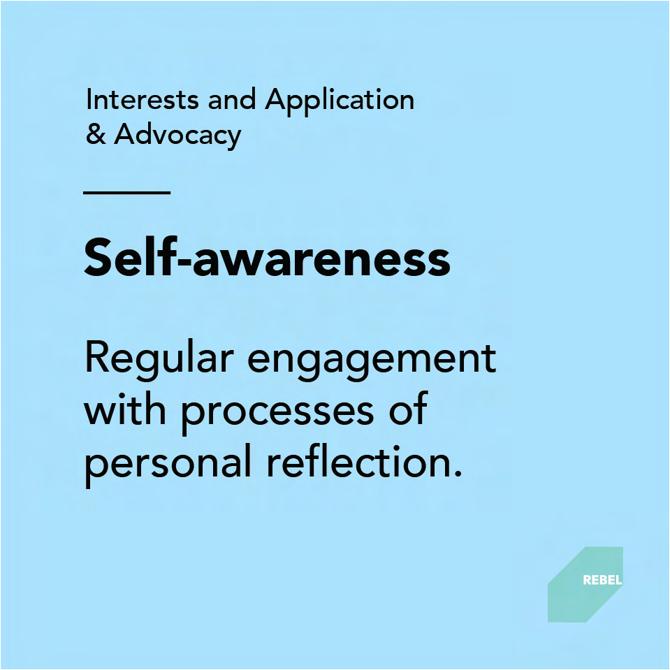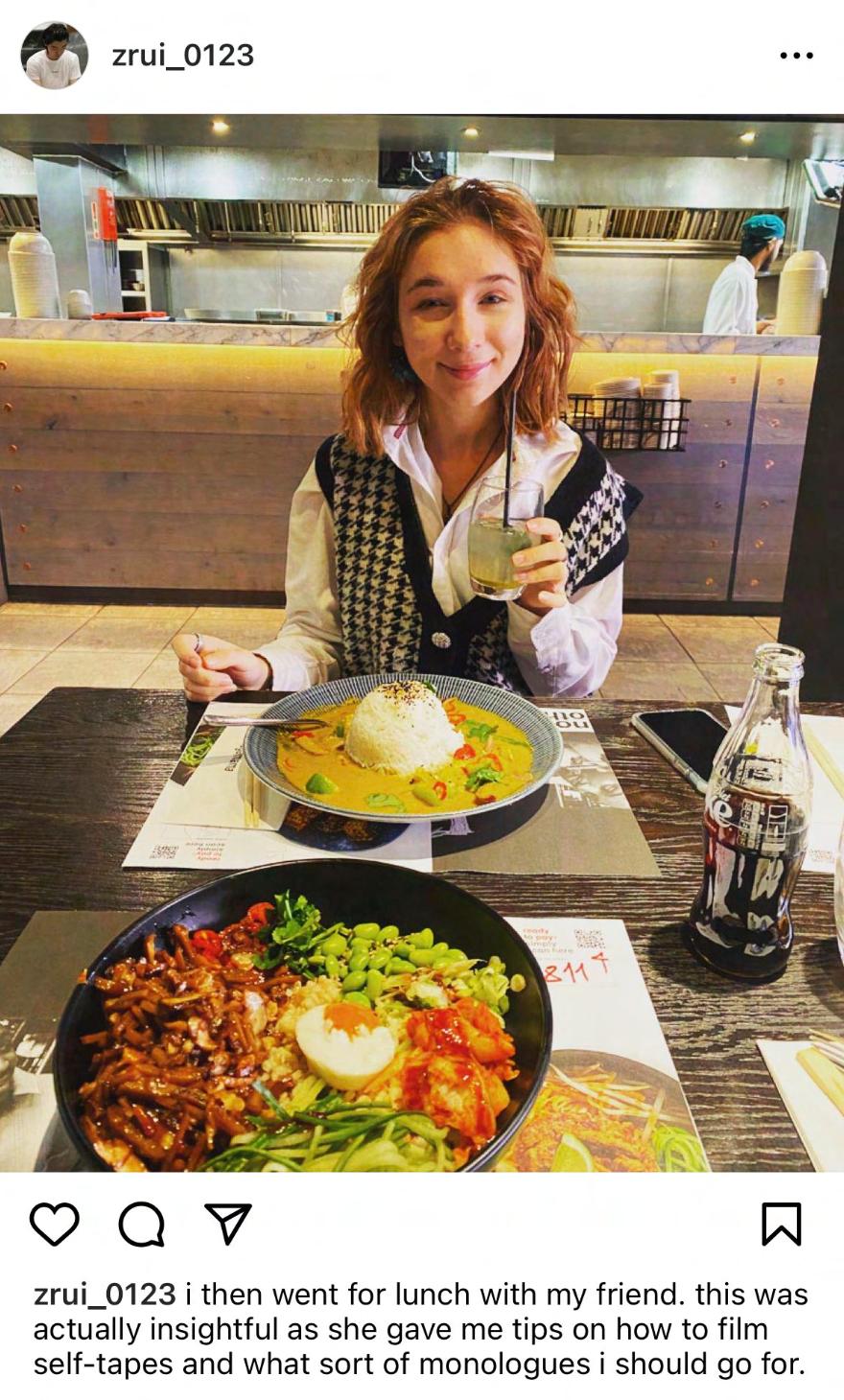1.
INTRODUCTION
18 people interviewed
06 workshops held
120h+ volunteering
14 community events volunteered at
30+ registered interest in EPQ

40h+ shadowing social action workers and volunteers





Recognition for social action

Introducing the learning qualification: EPQ
Total qualification time - 120h
Taught
Independent
Dissertation
5,000 words research-based report
Performance Artefact Investigation/Field Study
1,000 words research report portfolio or object +
group or solo performance
+
1,000 words written evaluation summary
Our focus
Introducing the skills framework: REBEL 1.3


Exploring the brief
How might an EPQ help people to make a change in their communities?
How might an EPQ help people to access Higher Education?
How might an EPQ help people to become more employable and develop new skills?
the brief reframed
EPQ Social Action in EPQ Social Action as
Somers Town has a rich history in social action and is full of well-connected organisations.
For the initial research, teams e xplored Somers Town to understand this landscape and the potential opportunities where to connect the EPQ.
METHODOLOGY AND PROCESS
Service design process 2.1
Volunteering
How might we?
Secondary research
Field research
User interviews
Scoping
Participant observation
Personas definition
Workshops
Impact mapping
Storyboarding
Testing and iteration
Ideation
Shadowing
Ecosystem mapping
Workshops
Expert interviews
Insights
Barriers and opportunities mapping
Tools development
Journey mapping
Next steps
Tools
Curriculum blueprint
Service concept
Ways of Working 2.2


teams divide in 3 groups to accommodate diverse partner needs
teams deliver 4 outputs adapted to diverse learner types Team 01 Team 02 Team 03 Open Book Team 07 Team 08
teams get together to deliver a common report
Individual Team
Outputs
Curriculum for young learners
The two other teams working with the Job Hub focused on supporting social actors working with young people let down by the education system.
A reflective volunteering journey that promotes professional development
One of the teams working with the Job Hub focused on how to support job-seekers to progress in their careers by combining volunteering work with a learning qualification (EPQ).

Toolkit for learning reflection
The teams working with the FYA decided to produce a common report containing tools to enhance social action by making visible the learning experiences of social actors.


Toolkit introducing design thinking to EPQ
The Open Book report offers a toolkit that introduces design thinking into learning process and improves the EPQ learning experience.

THE SOCIAL ACTION EPQ
Competencies developed during the EPQ









REBEL Adapted to Our Research

Contexts

x108 competence descriptions
Comprehensive competency framework



Prioritisation



Multitasking Leadership

Empathy


Resilience
Observation
Creativity
ADAPTATION 1
x17 skills cards
Simplified competency framework, adapted to participants
Skills tokens to tie skills to specific EPQ activities
x20 skills cards
ADAPTATION 2
Social action skills at FYA
Playful reinterpretation of the simplified competency framework and additional skills for social action


1- FYA and residents release challenge and problems on board. Social actors take these topic as projects.
Event planning
Material preparation Volunteer recruitment
Advertising Guidance system Order control Site planning
Learn from previous activities
How to plan illumination market?
How to design a clear wayfinding?
Ask volunteers worked on that problem before Ask other peer s suggestions
2 - Separate into small tasks. And assign to different people.
Planning journal and Reflection Pictures
Learn some design tools
Observation site supervision and support by FYA Basic knowledge of wayfinding
3 - Research: learn and solve the problem in many ways, and Record: record these process as learning evidence.
Wayfinding in illumination market
to send out?
4 - Implement - according to real situation set up guidance materials.
Feedback from participants
Feedback from activity organizer
5 - Reflection: reflect on these activities, think about what is nicely done and what is not.
6- Presentation: make a presentation to share your learning.
7 - Become mentor/supervisor - based on your learning, help and supervisor other learners who work on similar topics.
i d love to work as a social worker... but i don t feel confident. I don t have the required skills.
1- Tracy is not job-ready but has a personal interest in social work.
location:
JOB HUB
volunteering researching
Let s talk about volunteering and the EPQ!
process commences process
2- She goes to the Job Hub for support and discusses a process of -volunteering & EPQ- to develop a small business in the field she’s interested in.
3- Tracy starts volunteering at the partner organisation. She also starts researching for her EPQ project. By doing that, she begins the process of matching her existing skills with her interests through a journey of learning and reflecting
4- Volunteering and reflective learning has enabled her to develop a few ideas. She shares them with her mentor and begins to develop her childminder business
documentation
childminder business full project
business development
Partner Organisation that works with child care. ideas feedback with mentor research etc.... mapping
5- Tracy develops her business proposal using the design and study skills learnt through the EPQ.
completed childminder business project
existing skills interests reflecting ? ? ?
presents her idea shows the social impact has all the documents ready her business gets approved by Ofsted
6- She has a complete project proven by documentation. She is able to demonstrate her social impact and get her business approved by Ofsted. She is now a childminder.











4.
THE LEARNERS
Potential Learners of the EPQ
Based on the research activities described above, several learner types were created. They demonstrate the types of learners we expect to be interested in the EPQ, their individual barriers and goals, and highlight how an EPQ can help them in their overall objectives.
Job seeker
Elena is a 43 year old Somers Town resident. She is a first generation immigrant in the UK and has been unemployed for over ten years while raising her kids. She is now looking to get back into work.
Barriers
“I want to get back into work but I’m not sure how to do that.”
ABIBA
Community
Abiba is a 50 year old who has lived in Somers Town for over twenty years. Whenever she sees a social problem in her community she tries to do something about it. She’s busy juggling work and family responsibilities but wants to make wider, more lasting change in her community.
Adam is 60 and came back to education because of his passion for film-making. He was diagnosed as dyslexic late in life and lacks confidence in his academic skills. He now wants to get a qualification that can open up a pathway into higher education.
“I care about helping my community and if you can help me do that, I’m in.”
“I want to gain the skills and confidence to get back into the academic world”
Julia is a 18 year old who is looking for a better future and guidance on a pathway into higher education. She is lacking a role model in her life and would like to strengthen her support network. She is aiming to find a mentor, develop academic skills and become part of a community.
Jordan is a 19 year old who has left school and is trying to figure out his next steps. He enjoys taking part in youth programmes, and wants to meet more like-minded young people. He is looking to have fun and help out in the community while improving his resume.
“I want to have a brighter future, where do I start?”
“If I can get a proper qualification
out in the community, that would be great!”
5.
BENEFITS OF THE EPQ
5.1
Benefits for the Learners
How might an EPQ help people to make a change in their communities?
Access to funding
Network development
Reflection and improvement
Peer support
Enhanced social action projects
Academic skills
Critical thinking and reflection skills
Design and project management skills
Transferable skills
Recognised by UAL and Goldsmith’s
UCAS points
Level 3
Qualification
Selfconfidence
CV development
Mentor support
How might an EPQ help people to access Higher Education?
How might an EPQ help people to become more employable and develop new skills?
Benefits to the Community





